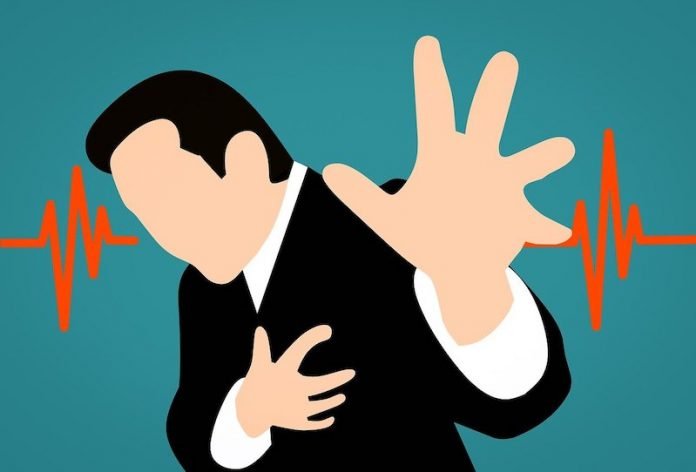
In a new study, researchers found the protein receptor in specialized heart cells that, when removed, preserves cardiac function after a heart attack.
This discovery has significant implications for survival after a heart attack, with a promising therapeutic development now underway.
The research was conducted by Vanderbilt scientists.
In the study, the team used genetic and drug models to confirm that removal of serotonin 2B receptors within cardiac fibroblasts—”worker bee” cells that produce connective tissue in the heart—help the organ heal significantly after a heart attack.
Typically, only a small region of the heart dies during a heart attack (myocardial infarction), but over time the borders of the scarred region expand.
The resulting stress on the heart to do more with less induces heart failure.
The researchers set out to figure out what exactly the protein receptor was responsible for during heart attacks and how it might be altered for improved outcomes.
Heart health is measured by ejection fraction—how well the heart is pumping. Normally, an animal has an 80% ejection fraction, which decreases by half following a heart attack.
In models in which serotonin 2B was either treated by a drug or genetically removed, the heart had a 50% greater ejection fraction six weeks after a heart attack.
The biggest metric in this study was cardiac function, measured through echocardiography.
Through biomechanical characterization of the scar and the adjacent border zone, the researchers measured how scar tissue structure and function changed.
They found that early inhibition of serotonin 2B after a heart attack results in a functional scar that is less likely to expand beyond the initial wound to put additional pressure on the heart.
They found the drug treatment preserves cardiac function six weeks after a heart attack to a much greater extent than the control group, and it effectively contains the border zone of the affected area of the heart from worsening.
The team hopes to develop a highly targeted molecule that impacts only serotonin 2B in the cardiopulmonary system where the receptor is highly prevalent.
The molecule will be designed to not cross the blood-brain barrier, thus avoiding neurological side effects.
One author of the study is David Merryman, a professor of biomedical engineering.
The study is published in Circulation.
Copyright © 2021 Knowridge Science Report. All rights reserved.



